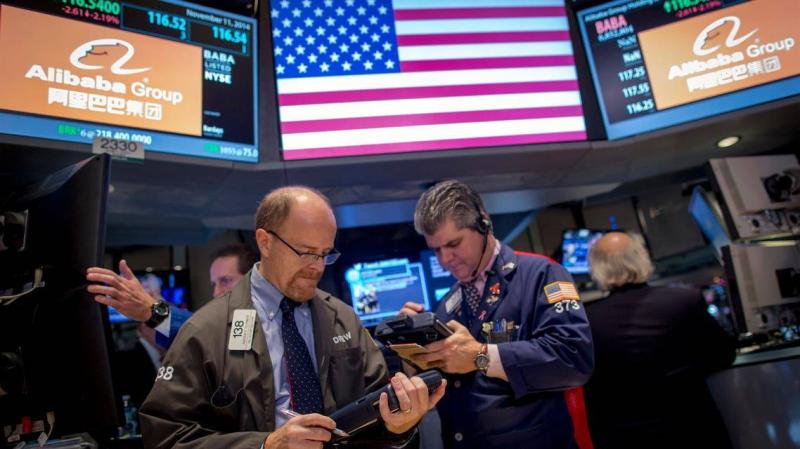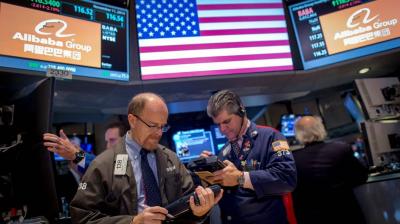Warnings are rising that the continuing increase in U.S. stock prices may stumble. Analysts from Goldman Sachs, Morgan Stanley, and Citigroup have issued new messages regarding the potential for negative shocks that could undermine the string of gains. The strategists identified the factors behind their changed outlook for the stock market, including the spread of the Delta variant of the coronavirus, a weak global growth recovery, and central banks' moves to exit pandemic-era stimulus programs, all of which pose risks.
Christian Mueller-Glissmann, managing director of portfolio strategy and asset allocation at Goldman Sachs, stated, "High valuations have increased market fragility." "If there is a new negative development, it could generate growth shocks that lead to a rapid reduction in risk."
Long positions have become extremely bullish, with the number of buy orders in the S&P 500 outnumbering sell orders by about 10 to 1. Half of these bets are likely to face losses if the index drops by 2.2%. Strategists at Citigroup, led by Chris Montagu, warned that even a minor correction could be amplified by the forced liquidation of currently open margin buy positions.
Meanwhile, Morgan Stanley reduced the relative weighting of U.S. stocks to equal weight in global equities on Tuesday, citing "significant risks" to growth until October. At the same time, Credit Suisse Group stated that it maintains a modest underweight in U.S. stocks due to high valuations and regulatory risks.
While nobody expects sharp sell-offs, the heavy investment in stocks has left investors overly exposed and susceptible to any hint of bad news. After seven consecutive months of gains in the S&P 500—the longest stretch since January 2018—many view stocks as ripe for a pullback in September.
Andrew Sheets, an asset management strategist at Morgan Stanley, remarked, “We will have a period where the data is weak in September as Delta variant risks and school reopening increase... If the data remains weak, then market valuations have not self-corrected as they have in other parts of the economy.”
Individual investors are seen as the primary force behind recent gains. They invested nearly $30 billion in U.S. stocks and ETFs in July and August, the largest amount in a two-month span, according to JPMorgan. They may also be a cornerstone that can help maintain market stability, as long as it remains easy.
Global strategists at JPMorgan, including Nikolaus Panigirtzoglou, wrote in a note on September 1: "Individual investors have been buying stocks and equity funds at a steady and strong pace that makes a correction seem somewhat unlikely." They added, "It remains to be seen whether the upcoming change in Federal Reserve policy will alter individual investors' stance on stocks."
These positions will eventually be tested by policymakers at the Federal Reserve and the European Central Bank, who are laying the groundwork for tapering asset purchase programs. Traders also do not expect any news about a slowdown in Federal Reserve policies until at least November, dismissing the possibility of interest rate hikes; however, it was not long ago that raised interest rates hindered another raging bull market in 2018.
Technical signals also indicate a pullback, as momentum and volatility show signs of institutional overheating, according to an analysis by Bloomberg Intelligence.
Lisa Shalett, chief investment officer at Morgan Stanley Investment Management, stated in a note: "The problem is that markets are priced as if they are perfect despite their fragility, especially since there hasn't been a correction greater than 10% since the lows in March 2020."
She wrote that the bank's global investment committee expects a 10% to 15% decline in the stock market before the end of the year. She added, "The strength of the main U.S. stock indices during August and the first few days of September, which pushed new record high daily levels even in the face of troubling developments, is no longer constructive," saying: "Consider taking profits in index funds," given that stock indices overlooked the resurgence of the coronavirus pandemic, declining consumer confidence, rising interest rates, and significant geopolitical shifts.




